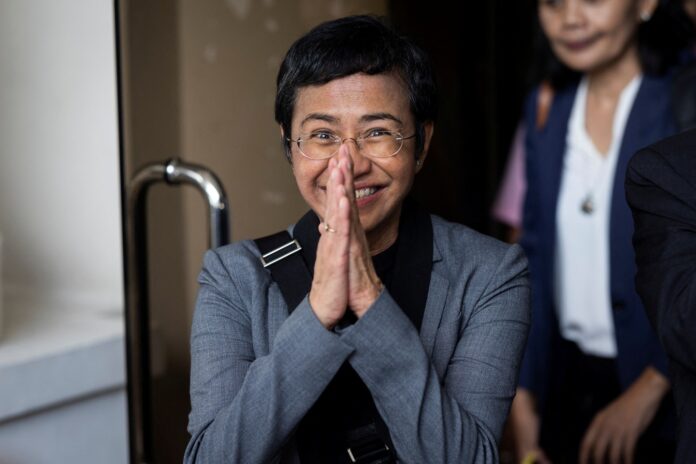“This is a victory not just for Rappler but for everyone who has kept the faith that a free and responsible press empowers communities and strengthens democracy,” Rappler said in a statement.
The cases began in 2018, against a backdrop of Rappler’s critical reporting about then-President Rodrigo Duterte, a tough-talking populist infamous for his bloody “war on drugs” that left tens of thousands dead.
Government accusations of foreign ownership and tax evasion were widely viewed by human rights watchdogs as attempts to put Rappler out of business and silence one of the loudest critical voices in the press. The country’s biggest broadcasting network, ABS-CBN, was also taken off air.
Ressa would have faced up to 10 years in prison and a $1,700 fine if she had been convicted on this charge. She was acquitted of four other charges of tax evasion under the Philippine Court of Tax Appeals earlier this year, but the case is under review after a government petition.
Julie Posetti, global director of research at the International Center for Journalists who studied online attacks against Ressa, called for the remaining cases against Rappler to be dropped. “The Marcos government must distance itself once and for all from the Duterte era attacks on the Nobel laureate and her news outlet,” said Posetti, who co-leads the international Hold the Line Coalition, a support network for the campaign against Rappler, referring to Ferdinand Marcos Jr., the son of a previous dictator who won in a landslide election alongside Duterte’s daughter Sara.
The government tax cases against Ressa and her company are based on the accusation that Rappler did not declare alleged unlawful investments from foreign investors, including the Omidyar Network of eBay founder and philanthropist Pierre Omidyar. The government alleged Rappler was involved in selling securities through Philippine depository receipts, and thus skipped out on paying over 600,000 pesos — some $11,000 — in taxes. Rappler has countered that depository receipts are not taxable.
Before founding Rappler in 2012, Ressa was a CNN correspondent and, later, led operations at the Philippines’ then-largest broadcaster ABS-CBN. That network was also taken off air in 2020 when the Duterte-backed majority in the Congress rejected its franchise. She was named Time magazine’s Person of the Year in 2018, and won the Nobel Peace Prize in 2021 along with Russian journalist Dmitry Muratov.
The Philippines has consistently ranked among the deadliest countries in the world for journalists, with over 150 media workers killed since 1992. It ranks 132 out of 180 in Reporters Without Borders’ Press Freedom Index.
Observers and journalists initially expected the state of press freedom to continue to deteriorate under President Marcos. On the campaign trail, Marcos shunned the traditional press in favor of hyperpartisan influencers, as trolls and supporters harassed journalists critical of his family.
But with Marcos seeking to rehabilitate his family image and court the West, maintaining Duterte-era grudges could be seen as counterproductive, experts say. Human Rights Watch senior researcher Carlos Conde said the verdict adds pressure to Marcos to maintain a commitment to human rights.
“Clearly, [the] verdict shows just how badly his predecessor weaponized the law against critics,” said Conde. “This should also signal to international actors that much remains at stake as far as rights in Philippines is concerned and they should leverage this ruling to demand … more compliance to international human rights laws and standards.”



